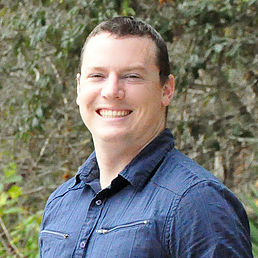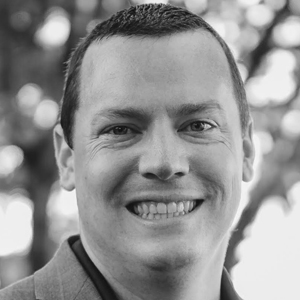How to deal with Burnout when you’re sick of everything and everyone.
Burnout. It can happen to the best of us, and it often comes with a feeling of resentment towards your job. But what is burnout? And how can you prevent it? To be clear, work-related burnout isn’t caused by too much work. Rather, it’s a state that occurs when we feel stressed or depleted from too many demands on our time and energy. The term “burnout” was first coined in the 1970s by Herbert Freudenberger to describe workers who were exhausted from their jobs.
It’s important to know the signs of burnout, as it may cause you to lose motivation for your job and could even lead to depression or anxiety. If you’re feeling burnt out at work, here are some steps you can take to prevent burnout from happening and make your life healthier.
Defining Burnout
Work-related burnout is a state of emotional and physical exhaustion caused by an imbalance of demands on our time and energy. It’s not the same as working too hard or feeling tired after a long day. Burnout has several stages as originally explained by Freudenberger:
- The Compulsion to Prove Oneself: intense attempts to demonstrate worth; more likely to be found in harder-working employees, those with enthusiasm, or those who accept responsibility readily.
- Working Harder: Often above and beyond typical responsibilities.
- Neglecting Needs: erratic sleeping, disrupted eating, declining social interactions
- Displacement of Conflicts: problems start to be ignored or set aside, rather than resolved.
- Revision of Values: Values shift, relationships and hobbies are deprioritized while work overshadows much of life.
- Denial of Emerging Problems: intolerance; perceiving collaborators as stupid, lazy, demanding, or undisciplined; social contacts harder; cynicism, aggression; problems are viewed as caused by time pressure and work, not caused by life changes or other stressors.
- Withdrawal: insufficient or nonexistent social contact
- Odd Behavioral Changes: clear changes in routine behavior which may be noticed by friends and family.
- Depersonalization: one cannot see themselves or others as valuable, and no longer attend to their own needs.
- Inner Emptiness: lack of emotion or enjoyment in activities. may seek out stimulating activities such as overeating, sex, alcohol, or drugs.
- Depression: feeling lost and unsure, poor outlook on the future
- Burnout Syndrome: loss of mental stamina and endurance, may struggle with regulating emotions and behaviors.
What Causes Burnout
It’s important to know what causes burnout so that you can take steps to prevent it. It’s not caused by too much work, but rather by feeling stressed or depleted from too many demands on your time and energy. When we experience burnout, the body releases a chemical called cortisol. This is the same hormone that kicks in when we’re in danger, but in this case, it’s happening because of stress at work. When this happens repeatedly, it can lead to problems like sleeplessness and a weakened immune system. Burnout can also lead to negative feelings towards your job–and resentment for your boss. In some cases, it even turns into depression or anxiety about work.
The Signs of Burnout
The signs of burnout can vary from person to person. Usually, the first sign is a loss of motivation. If you’re feeling drained, have low energy, and are feeling less enthusiastic about your work, it may be time to take a step back.
Some other signs include:
* Feeling exhausted or depleted
* Being constantly frustrated or irritated
* Having feelings of depression or anxiety
* Experiencing a lack of accomplishment in your work
* Experiencing decreased productivity and efficiency at work
How to Deal with Burnout
We feel burned out at work when we are required to do more than we can handle. There are many ways that you can take care of yourself when you are feeling burnt out, such as being mindful of your time and energy levels. Here are some steps you can take to prevent burnout:
-Figure out what is causing the burnout. Is it a change in workload? A new boss?
-Take care of yourself by unplugging from work outside of traditional working hours and taking care of your health.
-Find methods to manage your stress, such as exercise or meditation.
-Get more sleep, eat a healthy diet, and use relaxation techniques like yoga or mediation.
Conclusion
Burnout is the state of being completely fatigued or worn out by one’s work. Burnout can have a variety of causes, including working too hard, working too long, low pay, and repetitive work. Signs of burnout can be physical, such as sleep deprivation, or emotional, like a loss of enthusiasm for work. If you are experiencing any of these signs, it is important to take action and address the root cause of your burnout. If you are feeling exhausted and unmotivated, try taking some time off to give yourself a break from the daily grind. Reengaging with family and friends, or hobbies might also help you deal with burnout in a positive way. Try these tips and find what works best for you! If you need help with burnout, feel free to call us! We would love to help.
References
Freudenberger, H. J. (1974). Staff burn‐out. Journal of social issues, 30(1), 159-165.
- Which Therapy is Best? - December 14, 2023
- How to deal with Burnout when you’re sick of everything and everyone. - February 23, 2022
- The Hidden Dangers of Social Media: How It Can Eat Away at Your Mental Health - August 21, 2021









